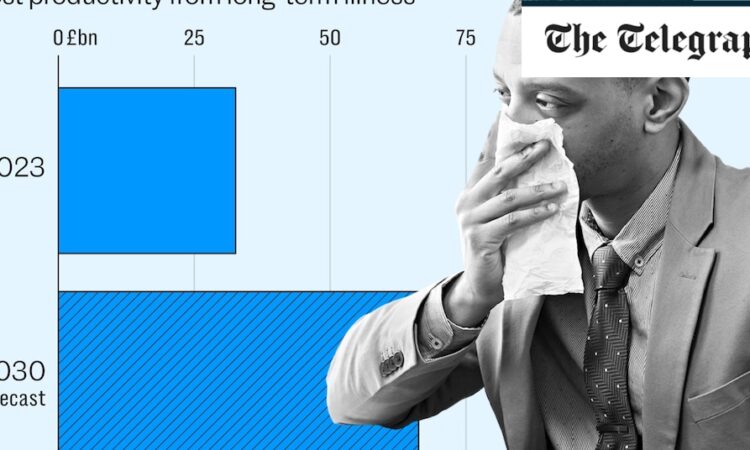
Some believe the strong job market is to blame for younger workers becoming far more willing to call in sick.
David is barely 10 years older than the colleagues he is complaining about. But having graduated just after the financial crisis when jobs were few and far between, he had little power in the labour market and was grateful for the opportunities he got.
“It used to be that you worked hard, proved yourself and then moved up the ladder to be the boss of your own destiny,” he says.
The economy today is very different: there are just over 900,000 jobs available and one in five employers are struggling to fill vacancies.
“I do think a tight labour market means employees are more likely to take sick leave in borderline cases as they are less worried about losing their jobs,” says James Davies, an employment lawyer at Lewis Silkin.
Many companies will pay staff their full wages for a period while off sick and some managers fear that people are seeing this entitlement as extra holiday days, rather than a safety net.
Convinced that the surge in absences is not just about worsening health, many bosses are now scrambling to find ways to address the issue.
“We’ve just upgraded our HR system, in part because it’s made it easier to track sick days,” says the founder of a charity that has seen a 65pc rise in sick days in six months.
“We don’t want it to be too easy for someone to go off sick so we have introduced a policy where they have to call up their manager, as opposed to just clicking a button saying they are off.”
Hours after we speak, two of his team go home ill.
The rise in sick days is becoming increasingly costly to the economy. Insurer Zurich believes it will cost Britain £66bn by the end of the decade.
Ministers are taking notice. Rishi Sunak on Friday vowed to end Britain’s “sick note culture”, unveiling a plan to strip GPs of their power to sign people off work.
“We don’t just need to change the sick note, we need to change the sick note culture, so the default becomes what work you can do – not what you can’t,” the Prime Minister said.
The changes are aimed at curbing the number of people signed off long-term sick, rather than sick days, but it is part of a broader push by the Government to keep people in work.






